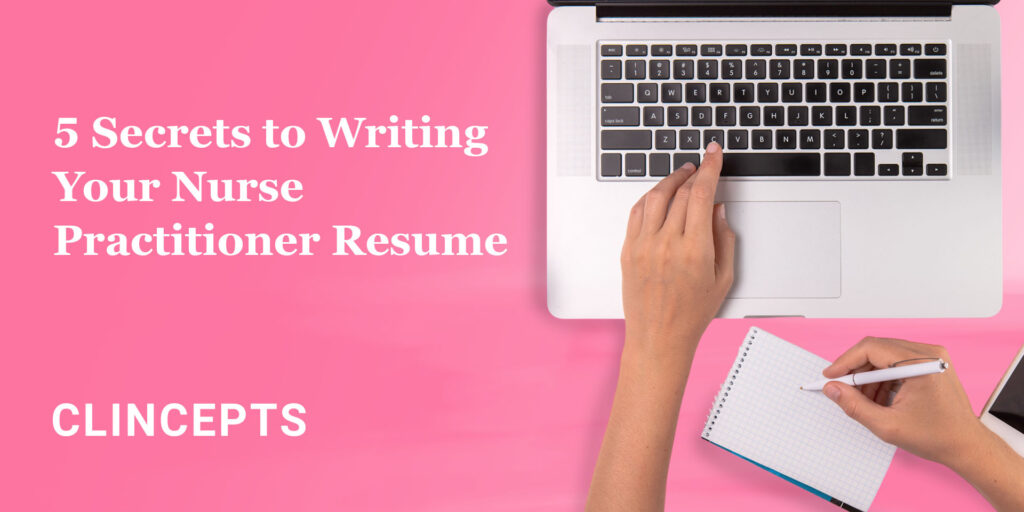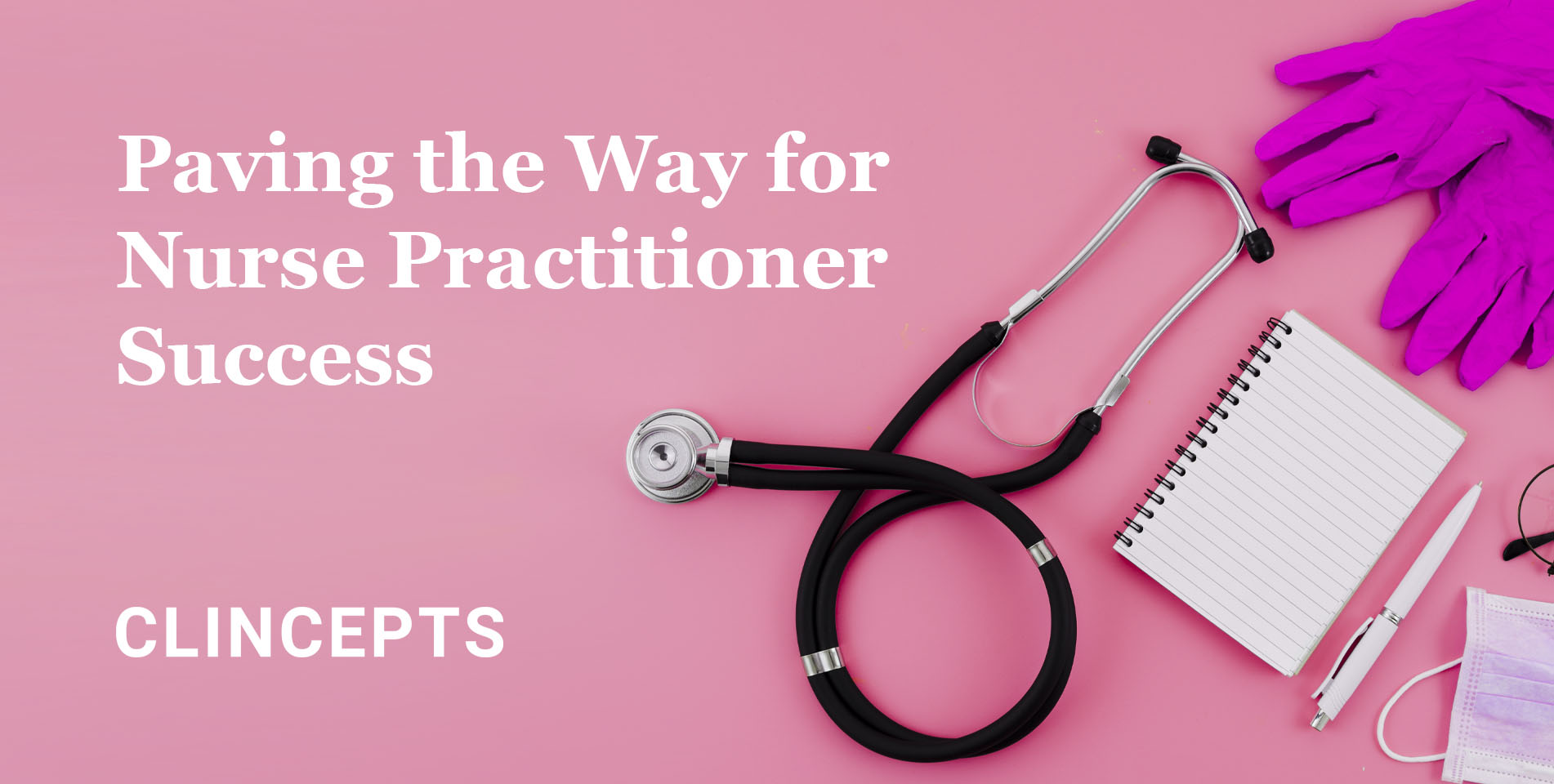The resume you used to land your RN job cannot be the same resume you use to secure your nurse practitioner role.
The phrase what got you here, won’t get you there is applicable when on the job hunt for your first or next nurse practitioner position. But not to worry, you’re about to learn 5 secrets to submitting a resume that converts to interviews.
1. Keep it simple.
Simple in formatting and simple in design. Use only 2-3 easy to read fonts and be careful how you use bold, italics, and underline features.
Include only your highest credentials or anticipated credentials in the header. Hey, I get you worked hard for those letters after your name and have a boatload of certifications. But you want to keep the top portion of your resume crisp, clean, and easy to read. A great solution for this is to utilize a specific section in your resume labeled licenses and certifications.
The length of your resume should be 1-2 pages. There’s a lot of debate about how long a resume should be. Plus there’s the ever present question of how you can possibly include your entire nursing career in a few paragraphs over a couple pages.
Think of your resume as the back cover to your book, a blurb that serves as a descriptive way to talk about your professional career. In a world of decreasing attention spans, you have about 5-10 seconds before your reader decides if they want to interview you.
A well-written resume converts to interviews.
2. Say what you need to say.
Anyone else cue John Mayer’s song in their head? Yep, I knew I wasn’t alone! But really, the best place to include all the highlights is in your professional summary.
Place this section right under your header.
Use key words from the job posting.
Describe how you would be the perfect candidate for the position.
The professional summary can also be labeled as:
Qualifications summary
Professional summary
Professional statement
Career profile
Your professional summary is the most important part of your resume.
Remember that the professional summary showcases your career highlights and differs from an outdated objective statement that announces you’re seeking a position. Instead of telling prospective employers you’re open to working for them, describe what they’d be gaining with you on their team.
3. Quantify outcomes.
Ask yourself these questions?
Did you help to decrease infection rates or hospital readmission rates?
Were you chair for a committee that impacted initiatives?
Did you hold a team lead role or supervisory position for a busy unit?
Briefly include the details that contribute to the positive outcomes within your clinic, department, or organization.
4. Leverage hard and soft skills.
Hard skills are the technical aspects needed to perform the job. Whereas soft skills are interpersonal skills, also necessary but not always expressed as critical aspects of the role. The job posting will give at least a brief description of expectations and skills the company desires in their next nurse practitioner. Use the key words in the job posting as a way to match what you have.
Acquired through education and on the job training
Technical, concrete abilities
Examples:
IV insertion, phlebotomy
EKG interpretation
ECMO trained
EPIC EHR competent
Soft Skills
Time and priority management
Leadership
Teamwork
Communication
Organization
Conflict resolution
Problem-solving
5. Include a cover letter unless directed otherwise.
Think of your cover letter as an essential element of the application process. Your resume and cover letter go together like PB & J; they should complement each other. If there is space to submit a cover letter, do so. Now, if there’s specific instruction to only include a resume, then follow instructions.
The cover letter isn’t a regurgitation of all the things you just mentioned in your resume. Instead it’s an opportunity to validate all the awesomeness from your resume and give your reader an invitation to schedule an interview.
Wanna make sure your resume will convert and get you an interview? Download the free resume checklist.


